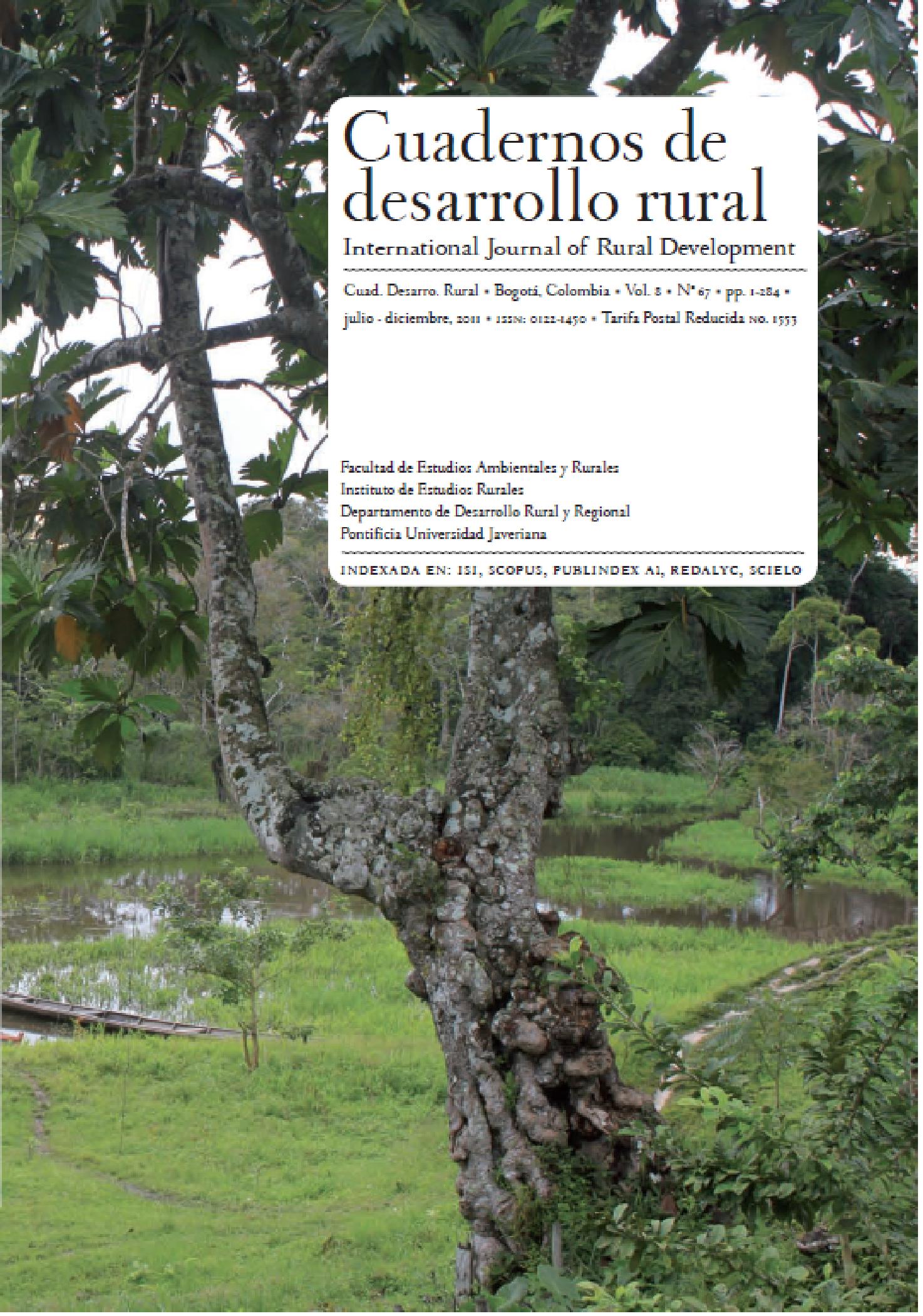Resumo
En los municipios de Riosucio y Supía del occidente del departamento de Caldas, recientemente se han desarrollado experiencias de agricultura sostenible, promovidas por organizaciones indígenas y campesinas, que han demostrado ser viables en términos económicos, ambientales y culturales. La tierra, sin embargo, se presenta como una limitante para su crecimiento. Se revisan los eventos que históricamente han determinado la conformación de la estructura agraria y el acceso a la tierra para diferentes actores y respecto del proceso de formación del sector de productores familiares a los que se dirigen las propuestas mencionadas. Se señalan los momentos de cambio, las transformaciones socio-productivas y las estrategias adaptativas desarrolladas por los productores, las cuales podrían explicar su permanencia en la zona.La investigación parte de finales del siglo xix, cuando se definen los principales rasgos de la ocupación social y productiva vigentes. La presencia de población indígena, la evolución de la legislación sobre los resguardos, la minería y la colonización cafetera han sido determinantes en el proceso.
Propriedade intelectual:
Instituto de Estudios Rurales, Facultad de Estudios Ambientales y Rurales, Pontificia Universidad Javeriana, Bogotá, Colombia.
O envio de um artigo para a revista Cuadernos de Desarrollo Rural, indica que o(s) autor(es) certifica(m) e aceita(m):
- Que ele não tem sido publicado, nem aceito para publicação em outra revista.
- Que, no caso de sua publicação for aceita, se o artigo ter uma versão previa como working paper (literatura cinza) ou aparecer numa site da internet, deverá ser retirado dele, ficando somente o título, resumo, palavras-chave e hipervinculo à revista.
- Que uma vez publicado em Cuadernos de Desarrollo Rural não será publicado em outra revista.
Ao enviar artigos para avaliação, o(s) autor(es) aceita(m) transferir(em) os direitos de autor à revista Cuadernos de Desarrollo Rural, para os efeitos da sua publicação na versão impressa ou eletrônica, mesmo firmará a licença de uso parcial anexa.
Responsabilidade de conteúdos:
O conteúdo dos artigos publicados por Cuadernos de Desarrollo Rural é de exclusiva responsabilidade do(s) autor(es) e não necessariamente reflete o pensamento do comitê editorial e científico da revista Cuadernos de Desarrollo Rural. Os textos podem se reproduzir total ou parcialmente, mas citando a fonte.
A publicação opera de acordo com a Creative Commons Attribution License (CC), "Alguns direitos reservados". Para as licenças CC, o princípio é o da liberdade criativa. Este sistema não se opõe aos direitos autorais, mas complementa-se com eles. Somos conscientes da importância dos direitos de autor na nossa cultura.
Creative Commons oferece um sistema que automatiza a pesquisa de conteúdos "comuns" ou sob licença CC. Assim, ao licenciar o seu trabalho, o criador estabelece as condições gerais que são digitalmente incorporadas nele, para que um motor de busca possa identificá-las e escolher a mais conveniente.
This work is licensed under a Creative Commons Attribution-NonCommercial-ShareAlike 3.0 Unported License.


